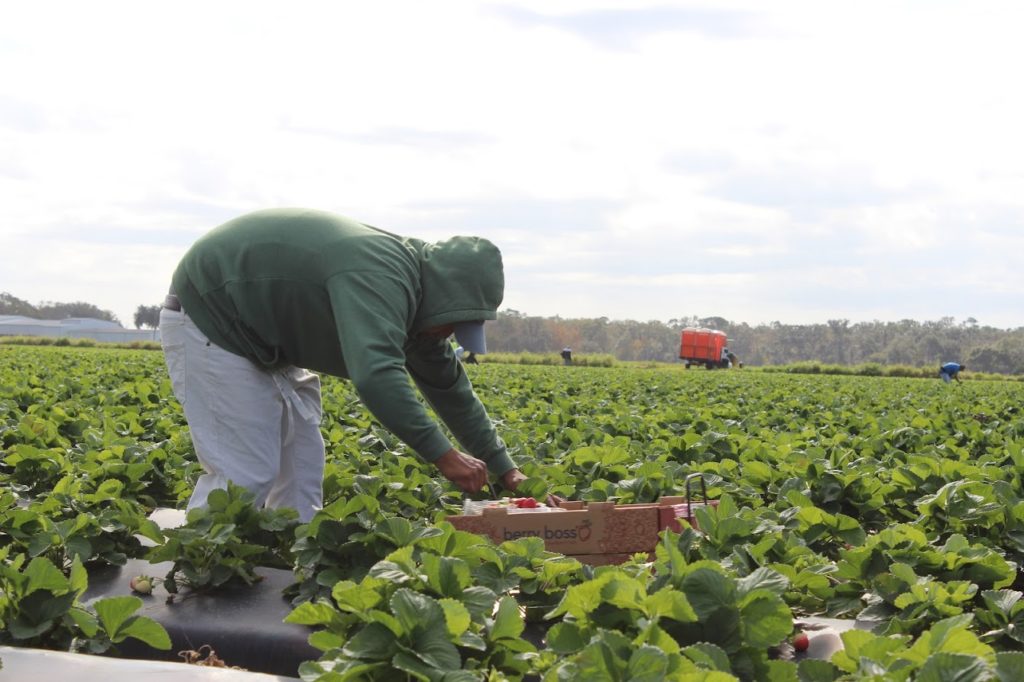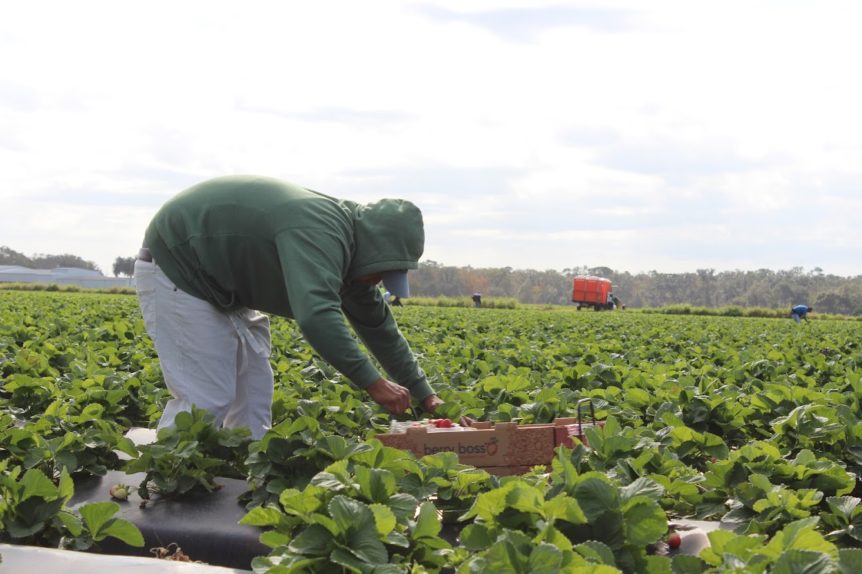
The changing of administrations could have significant ramifications on workforce availability for specialty crop producers.
President Donald Trump emphasized deportation of undocumented immigrants as part of his election strategy. If this happens, fruit and vegetable farmers could feel the sting of a shrinking labor pool since the specialty crop sector is reliant on an international workforce.
Fewer workers for ag employers across the country is a scary proposition, said Michael Marsh, president and chief executive officer of the National Council of Agricultural Employers.
“When we look at the numbers, it’s pretty frightening. I’ve heard from folks in New York, California, Michigan, Texas and different parts of the country who are very concerned they’re going to lose workers that have been in place for 20 or 30 years,” Marsh said.
The H-2A visa program allows U.S. employers or U.S. agents who meet specific regulatory requirements to bring foreign nationals to the United States to fill temporary agricultural jobs. Those workers are here legally and would not be subjected to the same treatment as those who are in the U.S. illegally.
“Folks who come in on H-2A visas, they’re vetted. They’re here on authorized status,” Marsh said. “The folks that are here on unauthorized status, those that came in illegally for some other reason, they’re not here appropriately. They don’t have a visa.”
Because of a lack of domestic workers willing to do farmwork, growers are already heavily reliant on the H-2A program for dependable labor. That reliance will be magnified if Trump follows through on his deportation plan.
Statistically Speaking
Marsh said there were 2.2 million hired ag workers in the United States, according to the Census of Agriculture in 2022. About 300,000 were H-2A workers. He estimates about a million workers would be classified as unauthorized. If they were to be deported, it would leave a significant gap in available workers and cause further delays in the H-2A hiring process.
“We know that given the staffing at the Department of Labor, they’re straining to handle the 300,000 visas that are issued on an annual basis. If we must bump that up and pick up another million, there’s just almost no way the system could handle it,” Marsh said.
“As a consequence of that, more H-2A employers today would have more and more delays in getting their workers here on time. It would continue to push more and more of our food production to our foreign competition like Mexico and Canada, leaving those legacy farming operations that we have here in the United States even more in jeopardy of being able to pass along that legacy family farming operation to the next generation.”
Immigration Reform
Unfortunately for specialty crop growers, ag labor needs have become a political issue. Because of producers’ reliance on H-2A, immigration reform is needed. Immigration reform has long been a controversial issue between the two major political parties with wide-ranging impacts, not just in the Southeast but across the country.
Marsh insists the issue needs to be resolved so fruit and vegetable producers can operate with certainty that they will have labor in place to do the necessary work.
“Congress has got to do its job. The last time we did anything substantial with regards to immigration reform in the United States was 1986,” Marsh said. “That’s ultimately where the buck’s got to stop. The administration is in charge of helping shepherd legislation through. They need to be supportive of us as well, so we can finally get this taken care of. Unfortunately, that takes some backbone in Congress, which we haven’t seen much of.”










